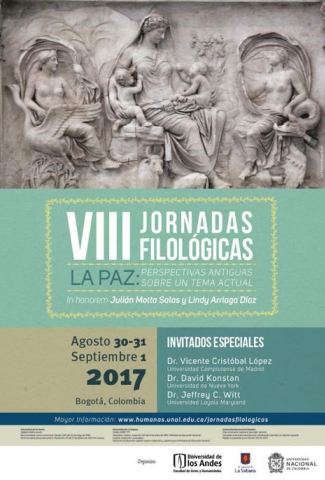
VIII Jornadas Filológicas. La paz: perspectivas antiguas sobre un tema actual
My paper examined the history and rhetoric of the ancient “Olympic truce” (ekecheiria), which aimed at ensuring safe passage for athletes and spectators to and from the festival of Zeus at Olympia. Conceived on the bloody battlefields of the Peloponnesian War, the myth of the ekecheiria became a focal point for sophists, orators, and intellectuals such as Gorgias, Lysias, Isocrates, Plato, the comedian Aristophanes, and others, who hoped to bring about a lasting peaceful coexistence among Greeks. Despite their endorsement of Olympic aetiologies that emphasized the ekecheiria, however, we know surprisingly little about the truce itself, how it was administered, who was and was not subject to its terms, and who was ultimately responsible for any violations. Nevertheless, the idea of the ancient “Olympic truce” remains foundational to the philosophy of the modern Olympic movement, from where it has spread to nearly every corner of the modern sporting world. The first half of my paper collected evidence (literary, historiographical, archaeological, and epigraphic) for the Olympic ekecheiria, its origins and its functioning throughout antiquity. I focused especially on the special role of the ekecheiria in sophistic and philosophical visions of Panhellenism, and on the analogy of the Olympic festival as a model of Panhellenic peace. The second half of the paper examined the appropriation by Baron Pierre de Coubertin, and by the modern Olympic movement, of ancient myths and rhetoric about the ekecheiria to promote a vision of world peace through Olympism. Do Coubertin’s philosophical and ideological borrowings from antiquity offer a roadmap toward “a better and more peaceful world”, as he imagined or, in the words of George Orwell, is international sport simply “war minus the shooting”?
